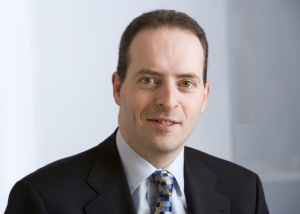BT: Fibre for 90 percent of UK could take six years

Some UK premises could have to wait up to six years to access super-fast fibre broadband services, according to BT chief executive Ian Livingston.

BT's chief executive Ian Livingston has said most British premises will have access to super-fast broadband of 100Mbps or above within six years. Photo credit: BT
Livingston made the comments to prime minister David Cameron and the cabinet on Monday during a visit to BT's research headquarters at Adastral Park, near Ipswich in Suffolk, according to a BT statement.
"Within the next five or six years, fibre-based services could be available to more than 90 percent of UK premises with the majority able to access broadband speeds of up to 100Mbps or above," Livingston said, reiterating a forecast made when the company announced its second-quarter results in November.
In July, Ofcom released detailed figures on the UK's fixed-line broadband services. It showed that the average speed for ADSL and cable connections was 7.5Mbps and that in total 68 percent of British premises had a fixed-line broadband connection.
The report also revealed that large parts of the UK, primarily rural areas — often referred to as 'the final third' in broadband terms — only have access to connections way below the government's super-fast broadband target, and even below the 2Mbps minimum.
The difficulty in providing fast and reliable connectivity to these areas is due to a combination of issues: premises are often a long distance from an exchange, and relatively small populations may only provide low subscriber numbers, affecting commercial viability.
Broadband rollout
Livingston said on Monday that the company's ongoing infrastructure expenditure and investigation into alternative broadband delivery options would reduce the UK's 'slow spots' — connections of less than 2Mbps — to less than two percent from a current level of 12 percent. BT said in October that it was bringing forward its schedule on delivering fibre broadband to two-thirds of the UK from 2015 to 2014.
In May 2010, BT pledged to spend £2.5bn on upgrading the country's broadband infrastructure.
BT will benefit from councils being allocated funds from the Broadband Delivery UK scheme, which aims to bring super-fast broadband to the majority of the country by 2015, and a minimum of 2Mbps for everyone within the same time frame. In line with this, BT also said it has recruited an extra 800 engineers to help deploy services more quickly.
In addition to providing fibre-to-the-cabinet (FTTC) and fibre-to-the-premises (FTTP) connectivity, BT is also involved in trials with Everything Everywhere that use 4G LTE connections as a replacement for fixed-line broadband services.
The 4G trial is currently taking place in Cornwall and is scheduled to end in January 2012. Users involved in the trial are able to get speeds ranging between 2Mbps and 20Mbps on average.
However, repeated delays to the crucial 4G spectrum auctions mean that the UK is not likely to see 4G data services being offered to consumers until 2014, at the earliest.
Get the latest technology news and analysis, blogs and reviewsdelivered directly to your inbox with ="http:>ZDNet UK'snewsletters.